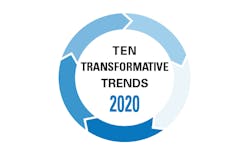There couldn’t possibly be a more fragile or complex moment for the nation’s accountable care organizations (ACOs), which were already being buffeted by winds of policy and payment change—particularly those participating in the Medicare Shared Savings Program (MSSP) and Next Generation (NextGen) ACO Program, sponsored by the federal Centers for Medicare & Medicaid Services (CMS).
As early as last autumn, leading healthcare associations, including the Washington, D.C.-based National Association of ACOs, or NAACOS, and the Charlotte-based Premier Inc. alliance, were calling for CMS to modify its benchmark standards for clinical performance for providers under the MSSP, arguing that CMS’s existing benchmarks were making it extremely difficult for providers in rural, underserved, and other problem areas to participate in the MSSP (let alone NextGen).
Indeed, the tension between CMS on the one hand and numerous provider associations involved in ACO development on the other hand, had already approached a breaking point prior to the emergence of the COVID-19 pandemic this spring, with the leaders of NAACOS in particular essentially threatening a mass walkout on MSSP if CMS Administrator Seema Verma held firm to her position that ACOs must move quickly and inexorably into downside risk.
And then along came the COVID-19 pandemic, which has wreaked havoc on provider organizations. On the hospital side, most hospitals around the country quickly canceled or postponed most elective procedures following a March 18 CMS recommendation, meaning that the total hip and total knee replacements, whose reimbursement had been keeping them afloat in a landscape of already-narrowing reimbursement, were now off the table. On April 19, CMS issued a first set of guidelines around reopening hospitals to elective surgeries, involving a multi-step, criteria-driven process, which presumably would take a fairly long period of time to evolve forward in many states.
But that step proved to be insufficient in this context, as hospitals and physician groups continued to hemorrhage cash through the spring. Indeed, the Chicago-based Kaufman Hall consulting firm produced a “National Hospital Flash Report” in late April, based on March data, showing that hospitals’ median operating EBITDA [earnings before interest, taxes, depreciation, and amortization] margins had fallen more than 100 percent in March, dropping a full 13 percentage points relative to last year, or a drop of 1,326 basis points in average operating EBITDA between March 2019 and March 2020, a shift that, as the firm noted, “demonstrates that over 90 percent of organizations had a negative shift in margin, resulting 75 percent of hospitals having an unsustainable operating margin.” Or, as Kaufman Hall managing partner Jim Blake put it, among U.S. hospitals right now, “The ones who can sustain themselves are a very small percentage.”
And it is in that context that CMS’s Verma announced a dramatic change in policy on April 30. The agency stated on that date that, “Because the impact of the pandemic varies across the country, CMS is making adjustments to the financial methodology to account for COVID-19 costs so that ACOs will be treated equitably regardless of the extent to which their patient populations are affected by the pandemic. CMS is also forgoing the annual application cycle for 2021 and giving ACOs whose participation is set to end this year the option to extend for another year. ACOs that are required to increase their financial risk over the course of their current agreement period in the program will have the option to maintain their current risk level for next year, instead of being advanced automatically to the next risk level.”
On that same day, NAACOS issued a statement attributed to its president and CEO, Clif Gaus, Sc.D., in which the association said that “NAACOS thanks Seema Verma and her staff for their hard work to address the COVID-19 pandemic’s effect on ACOs and for listening to our concerns. CMS addressed many of the issues NAACOS raised in March when this pandemic first hit hard, and the rule is a fair way to handle ACO performance during a global public health pandemic. We’re appreciative of the thoughtful ways CMS will modify the Shared Savings Program during the public health emergency, especially by removing spending associated with COVID-19 patients from performance calculations. NAACOS and others asked for this change last month. CMS’s extending its mitigation of shared losses back to January 2020 and providing flexibility for ACOs to stay in their same risk track next year will help sustain participation in the program for 2020.”
Yet even while thanking Verma for that move, NAACOS stated that “[W]e were disappointed to see there will be no application period in 2021 for new ACOs and hope CMS will be open to a partial 2021 performance year as the healthcare industry stabilizes. NAACOS remains concerned about the uncertainty of the length of the public health emergency and believes COVID-related costs should be removed from the entire performance year.”
Longer-term risk issues
All of this back-and-forth between CMS and ACO leaders spoke to deeper and broader problems ahead. COVID-19 has profoundly altered the landscape of value-based reimbursement, as both hospital-based health systems and physician groups reel from the economic impact of the pandemic. On the one hand, CMS moved quickly in March and April to remove payment- and licensing-related barriers to the expansion of telehealth; but the question as to whether enhanced payment for telehealth services and whether the licensing restriction relaxations would continue into the future beyond the immediate phase of the epidemic, continue to hang heavily in the air. It’s as though a train has been stopped in its tracks, and its future locomotion remains uncertain.
What’s so incredibly tricky here is that Verma and the other senior federal healthcare policy officials were hoping to force progress forward on accountable care, even at the risk to massive departures from MSSP. But now that the healthcare industry is in crisis, Verma seems to have realized that any aggressive moves in this area might set everyone and everything back.
So on the one hand, there’s no question whatsoever that value-based payment and care delivery are going to be essential components in the U.S. healthcare of the future. But what that will look like even a year from now, remains a cloudy picture indeed.
“Will it [the financial impact of the COVID-19 pandemic] dampen the incentive for providers to participate? Potentially, yes, because no one wants to take income decline-based risks,” Kerns says. At the same time, if you can win at downside risk and you can earn extra income. What CMS has effectively telegraphed is that upside-only risk models will no longer be available. But if you don’t want to do downside risk, you probably wouldn’t be successful at upside risk, either. So this may halt providers’ near-term interest in aggressively going after it, because of near-term financial issues.” Still, Kerns says, “Long-term, what will drive hospitals and health systems into risk-based models will be their physicians. And the direct contracting model will be appealing to many physicians. So in the long term, I don’t think this will change the fundamentals.”



